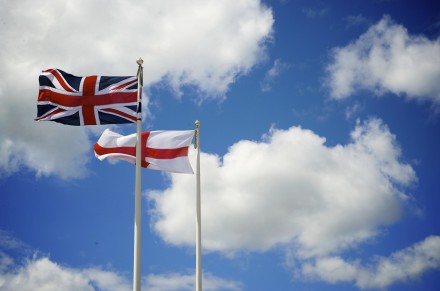

There can be no Labour recovery unless Labour wins England. Labour’s wipe out in Scotland and it’s current third place in the polls there leaves the party in an even weaker position than in England. It will actually be easier to win an English majority than in Britain as a whole.
What Labour says and does about England is critical.
Which is why yesterday’s devolution summit looks like such a bad move. The plan is clear. A federal Union of Northern Ireland, Scotland and Wales and the regions. These regions – that virtually no one in England wants or recognises – will not have the same powers as Scotland or Wales, but some limited devolution from the UK federal government. I’m in favour of a federal UK based on the four nations. I’m in favour of devolution within England. But it should be the English people who decide how this is to be done.
I must admit that I’m unclear how official this taskforce is, though the presence of Jon Trickett and Jim McMahon give it front bench endorsement. But it is a curious body to decide on the carve up of a nation.
The leaders of Welsh and Scottish Labour are there. As are three English male mayoral candidates who have yet to be elected. The women mayoral candidates were not present. One man represents all of English local government. No one present has an unambiguous brief to represent the interests of England as a whole. And little has been said about consultation within the party, let alone the promised, wider, constitutional convention.
Those involved have been studiously vague about the details of their plans for England, but we can glean quite a lot from Gordon Brown’s recent speech, Jeremy Corbyn’s interviews and other policy statements.
I hope I’m wrong but this seems to be how Labour’s 2020 manifesto for England is shaping up:
- England will be divided into regions that few support and were rejected in the North East in 2004
- These regions will be under the rule of the UK government (made up of MPs from Wales,Scotland and Northern Ireland as well as England) and will only get limited powers devolved from it.
- Scotland, Wales and Northern Ireland will get new powers as of right. England will get no new powers.
- The English regions will not get the same legislative powers as Wales, Scotland or Northern Ireland currently enjoy.
- No elected body will speak for England as a whole
- Laws affecting England will continue to be made by MPs from Wales, Scotland and Northern Ireland. English Votes for English Laws will be repealed.
- There will be no executive dedicated to implementing policy for England as a whole.
- English regions will be denied control of their own resources.
- England will still pay for the Barnett formula and and the use of English resources will be determined by the UK federal government
- Scotland will gain new fiscal powers but England will still underwrite the UK’s social security bill.
- Scotland will be able to sign international treaties; England will have international treaties signed for it by the UK federal government.
- The dynamic leadership being shown by Labour English councils will be marginalised in favour of new regional assemblies.
- English local authorities will not gain any additional powers as of right
It’s clear how this works for Scotland. Much less clear who in England would vote for it. And that is where, in the immediate future, Labour’s recovery must come.
In 2015, Labour had least support in England amongst the growing number of voters who emphasise their English identity. Fear of Scottish influence over a minority English Labour government dominated the English election campaign. These issues will be more, not less, important at the next election. In 2020 Labour needs to recognise that mood and reflect it in a positive plan for national and local democracy for England. Instead we seem to be drifting towards the dismemberment of England and the undermining of its legitimate interests.
The debate about federalism should be the starting point for a stronger union and a stronger England. But this taskforce seems to be getting off in the wrong direction.
John Denham is a former Labour MP and minister, and is director of the Centre for English Identity and Politics at the University of Winchester.




More from LabourList
‘Labour’s quiet quest for democratic renewal’
‘Labour promised to make work pay. Now it must deliver for young people’
‘Council Tax shouldn’t punish those who have the least or those we owe the most’